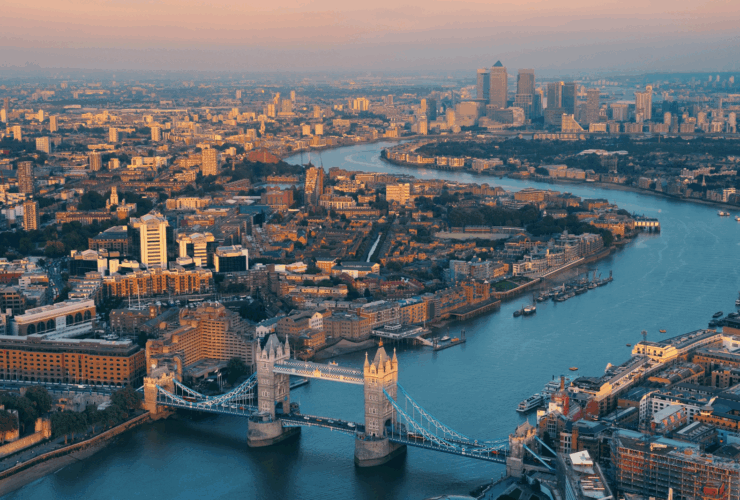Empowering Communities: The Story of Dunedin Community Mediation
Empowering Communities: The Story of Dunedin Community Mediation
WRITTEN BY RUTH CHAPMAN
Learn about the story of Dunedin Community Mediation in this article by Ruth Chapman, founding member and trustee. Founded on principles of inclusivity and empowerment, the organisation has a team of dedicated volunteer mediators, offering assistance primarily in family, neighbourhood, and workplace disputes. Despite facing financial constraints, the service maintains its core values and looks ahead to a future marked by continued growth and resilience.
This article was first published in “Mediation Matters!”, the quarterly newsletter of the University of Strathclyde Mediation Clinic.
Dunedin is sometimes known as the ‘Edinburgh of the South’ and has strong Scottish connections. We are a city of around 130,000 people and are home to the University of Otago. Our mediation service began as an idea from the University’s National Centre for Peace and Conflict Studies. The Centre is no longer directly involved but without its initiative we would not have Dunedin Community Mediation today. The original broad idea was developed by a group of ‘peacemakers’ with varied backgrounds and launched in 2014.
In those first discussions we made some key decisions. We would not compete for work with mediators in professional practice. We would be a free service, providing access to mediation for those who would otherwise not be able to afford it. We would use a co-mediation model.

Nearly 10 years on we have not changed any of those foundational decisions. Offering a free service has indeed removed barriers to access. It has also enabled mediation where one person might have been willing to pay but the other was not. Co-mediation – and I speak as a recovering sole practitioner – has had a range of benefits. It has reduced the professional loneliness the sole practitioner can experience. It allows us to take inexperienced mediators and pair them with the experienced. It exposes us all to differing mediation styles, which is professionally enriching. It models co-operation. It provides peer supervision, and it helps us to monitor the quality of our service.
In those first discussions we made some key decisions. We would not compete for work with mediators in professional practice. We would be a free service, providing access to mediation for those who would otherwise not be able to afford it. We would use a co-mediation model.
All our mediators are volunteers. We had planned to pay them, in recognition of their professional expertise, so that is the one early decision we have changed. It came about because we struggled to obtain funding and so we could not afford to pay them. That necessity has become a strength for our small organisation. It reduces operational complexity. It means that the mediators can spend as long as is needed on a mediation because there are no cost ramifications. It does also mean that we cannot overtax our mediators so most will do no more than three mediations in a year. Mediators can step back if life requires it and rejoin us when they are ready. It often helps that mediation participants know that the mediators are doing this as a goodwill activity, for the love of helping others to achieve peaceful outcomes.
We have no shortage of volunteer mediators – we have 15 at present – and new people approach us on a regular basis. Some are experienced mediators who are giving back. More come with training but little or no experience. We know that the hardest thing for a newly qualified mediator is to get their first real-life mediation. (I get the thrill over and over of seeing new mediators ‘go live’.) While our mediators are not paid, they value the training and experience they receive, regardless of their own experience and background. Providing the opportunity for that is one way we can assist the mediation community in general.
We have been very fortunate that our local Polytechnic has begun to offer a graduate diploma in conflict resolution. Our close relationship is mutually beneficial: we have been able to access short-course modules for our mediators, and hopefully we will offer students the opportunity to shadow a live mediation as part of their study programme.
One of our lovely surprises is the extent to which our mediators have become extended family – we use the Māori language word whānau in Aotearoa New Zealand. Working together, sharing ongoing professional development training and peer supervision with a common goal of building a peaceful community is a powerful and joyous experience.
In the last couple of years, we have also offered a conflict-coaching service. In situations where mediation is not appropriate or not possible, mediators who are also trained coaches can work with a person to help them improve their skills in conflict situations. Those in the coaching group meet more regularly to share approaches and models we can use in our coaching.
Our values are inclusiveness, empowerment, accessibility, building a peaceful community and aroha (which means extending empathy, love, compassion, concern and care).
Early in our work we identified the values we wanted to embody as Dunedin Community Mediation. They are inclusiveness, empowerment, accessibility, building a peaceful community and aroha (which means extending empathy, love, compassion, concern and care). We aim to live out these values with the members of our organisation and with all those who come to us for assistance.
Our mediation participants come to us with a variety of issues needing resolution. Family conflict is a common issue, whether it is intergenerational conflict, sibling issues or separating parents. Neighbour disputes, groups experiencing difficulties, and colleagues having difficulty working together are the other main areas. We have no official or automatic referral sources and those seeking to use our service come via local organisations, lawyers, word of mouth, our pamphlet and the website. Some enquiries are resolved – or referred on – during the initial conversation. Sometimes finding a person to listen is all that was needed. If our involvement is chosen, mediators or coaches are assigned, and the mediation journey continues for as long as it is needed.
We also try, when time and resources permit, to run training workshops, as part of our ancillary purpose of providing training and education to the community about mediation and peaceful conflict resolution and its benefits.

We are a charitable trust, with some of our trustees involved since inception. We are a ‘virtual organisation’ with no physical premises. We have a pamphlet, a website, a Zoom account and a free phone number. We are fortunate to have access to affordable rooms in a community facility and we offer mediation in person and online. Our manager is employed for eight hours per week to deal with intake, some promotion and administration – and much else! I have the role of Mediator Co-ordinator, which means that I support new mediators, assist with assigning mediators to cases and lead the training and professional supervision aspects of our work. All our members – trustees, mediators and manager – work together in a truly co-operative way to develop policy and improve our service.
We believe that we are now the only community mediation service in New Zealand, and we are quietly proud to find ourselves entering our 10th year with a solid foundation and in good heart. Of course, we face challenges. While our budget is small, so are the funding sources. We need money to pay our manager, to provide training support for our mediators, to hire facilities for mediation and coaching activities. With our limited resources we have tried not to get ahead of ourselves, to make sure we are doing what we do well, and to balance publicity for our service with our ability to deliver it. In 2024, as we celebrate our 10th anniversary, we will use the milestone to identify some new goals including improving systems for evaluating our services, but those original core values will remain. We look forward to seeing what arises in the next 10 years of mediation services!
Please get in touch if you want to know more about our small organisation at the bottom of the world!

Ruth Chapman is a founding member, current trustee and Mediator Co-ordinator of Dunedin Community Mediation. She has a background in education and unions and, in ‘middle age’ trained as a mediator. Ten rewarding years as mediator at the University of Otago, Aotearoa New Zealand focused mostly on assisting staff to repair working relationships, and students and supervisors to work better together. Now retired from paid work she continues to participate in the joy of mediating, as well as educating and helping to grow peaceful communities in Otepoti Dunedin.



